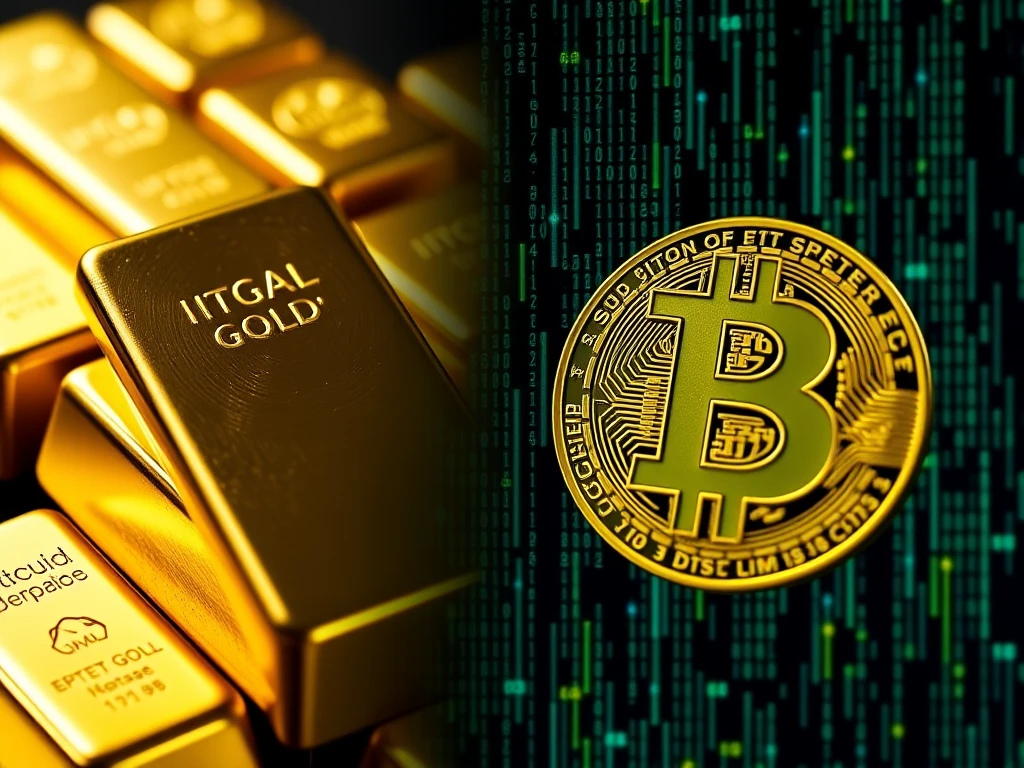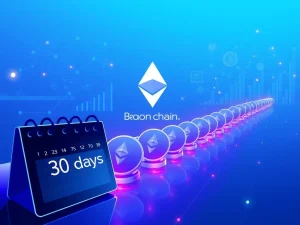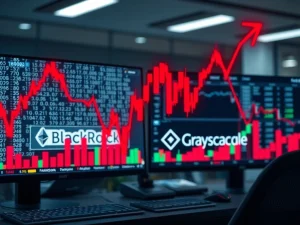Smart Investors’ Showdown: Bitcoin vs. Gold – Unveiling the Superior Investment

As gold prices reach unprecedented heights, a classic debate reignites within the investment world: Bitcoin vs gold. For decades, gold has been the go-to safe haven asset, but the rise of Bitcoin as a digital alternative has sparked intense discussions. Is Bitcoin the new ‘digital gold,’ poised to dethrone the traditional king? Or does gold’s long-standing history and tangible nature still reign supreme? This article dives deep into the investment hurdles, access points, and custody complexities of both assets, helping you make an informed decision for your portfolio.
Bitcoin vs Gold: Access and Ease of Purchase
When it comes to acquiring these assets, the experience differs significantly. According to Ross Shemeliak, co-founder of Stobox, buying Bitcoin boasts unparalleled speed and ease. Consider these points:
- Bitcoin: Available 24/7, transactions are often instant, and platforms are readily accessible online. No need for physical vaults or specialized storage immediately upon purchase.
- Gold: Purchasing physical gold can involve visiting jewelers, coin shops, or bullion dealers. This process is confined to business hours and may require physical travel.
Adam Lowe from CompoSecure emphasizes the challenges associated with physical gold, especially concerning quality assurance. Investors buying physical gold face:
- Quality Verification: Ensuring the purity and authenticity of gold requires trust in dealers and the supply chain.
- Premium Costs: Retail buyers often pay a premium over the spot price of gold, increasing the initial investment.
- Liquidity Issues: Selling physical gold can be slower and might involve discounts to market prices as finding a buyer and verification takes time.
In contrast, Bitcoin transactions are digital and verifiable on the blockchain, offering a transparent and efficient purchase process.
Custody and Security: Navigating Investment Hurdles
The aspect of custody presents a stark contrast between Bitcoin and gold, posing unique investment hurdles for both. Gold advocates often highlight the tangible nature of gold as a security advantage, but self-custody of Bitcoin is a central tenet for many crypto investors.
Rafi Farber, a gold proponent, points out the complexities of Bitcoin self-custody for newcomers. He argues that:
- Complexity for New Users: Setting up Bitcoin self-custody involves understanding private keys, seed phrases, and wallet technology, which can be daunting for those new to crypto.
- Risk of Loss: Mismanaging private keys can lead to permanent loss of Bitcoin holdings.
- Technical Challenges: Concerns about power outages or technical glitches impacting access to digital wallets are sometimes raised.
However, proponents of Bitcoin self-custody argue that owning your private keys is crucial for true ownership and financial sovereignty. While there is a learning curve, resources and user-friendly wallets are increasingly available to simplify the process. Companies like Trezor even offer onboarding sessions to assist users.
On the other hand, while physical gold is tangible, its custody also presents challenges:
- Storage Security: Securely storing physical gold requires vaults, safes, or bank deposit boxes, incurring additional costs and logistical considerations.
- Risk of Theft: Physical gold is susceptible to theft, requiring insurance and robust security measures.
- Verification Upon Resale: When selling physical gold, proving its authenticity and purity can be necessary, potentially adding steps to the process.
Bitcoin and Gold as a Store of Value: Which Reigns Supreme?
Both Bitcoin and gold are often touted as a store of value, particularly in times of economic uncertainty or inflation. However, their characteristics and performance as stores of value differ.
Gold’s appeal as a store of value is rooted in its:
- Historical Significance: Gold has been valued for millennia, acting as a reliable store of wealth across civilizations.
- Tangible Asset: Its physical nature provides a sense of security and scarcity.
- Inflation Hedge: Gold has historically been seen as a hedge against inflation, although its performance in recent inflationary periods has been debated.
Bitcoin, as a newer asset, is building its reputation as a store of value based on:
- Digital Scarcity: Bitcoin’s supply is capped at 21 million coins, creating digital scarcity similar to gold’s physical limitations.
- Decentralization: Bitcoin operates outside of traditional financial systems, offering a hedge against centralized control and potential government intervention.
- Growing Adoption: Increasing institutional and retail adoption is strengthening Bitcoin’s legitimacy and long-term value proposition.
Shemeliak points out that gold will always hold historical value, but Bitcoin is constructing the financial infrastructure for the future. While gold has a long track record, Bitcoin’s technological innovation and growing network effects present a compelling case for its role as a modern store of value.
Conclusion: Choosing Between Bitcoin and Gold for Your Portfolio
The choice between Bitcoin vs gold ultimately depends on individual investment goals, risk tolerance, and understanding of each asset. While gold offers a sense of traditional security and historical precedent, Bitcoin presents a modern, digitally native alternative with unique advantages in access, transparency, and potential growth. Neither asset is without its investment hurdles, but understanding these challenges is key to making a smart and informed decision. As the financial landscape evolves, considering both traditional and digital gold within a diversified portfolio might be the most powerful strategy for navigating the future of investment.










